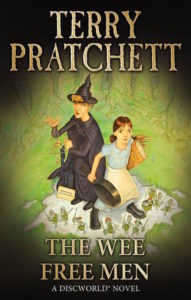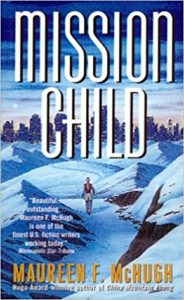I fucking devoured this book. It is dark and brutal and cruel and one of the most honest portrayals of what it means to be a woman with ambition when everyone around you automatically assumes you lack agency because of your youth and beauty OR views you as a threat simply because of those last two. I mean, honestly, even without the Other Thing coiled within our heroine (or anti-heroine, if you’re so inclined) Xifeng’s breast, it is a terrific examination of the frustration within the soul of any woman who wants more than just a little house with a husband and child and a happy but entirely pedestrian life. I have never been particularly ambitious myself, and I love my family, my domestic life with three small children to bits, but oh how I sympathized with Xifeng and the interior fire, the rage at being constantly underestimated and sidelined for being a woman! Born in a peasant village and raised by her abusive aunt Guma to believe that she will one day become Empress, Xifeng holds an important piece of her heart back from Wei, the young man who will be her initial means of escape from a life of poverty and unrelenting hard work. She loves him as much as anyone raised to believe that love is a weakness can love anyone else (and to a large extent, I want to tell her that she doesn’t really love him as much as she wants to love him and this is okay and she should stop beating herself up about it.) But it is her beauty and self-belief and education (and to a very large extent, her unbounded intellectual curiosity) that will raise her to her destiny, even as a dark god claims her for his own.
Guys, I’m going to be so mad if she’s supplanted by a milquetoast Snow White in the sequel to this. For those of you unaware, this book is a mystical East Asian retelling of the Snow White fairytale, from the point of view of the evil stepmother as she rises to power (hence the subtitle.) Xifeng does some dark and terrible things out of desperation, out of a need to protect what she’s earned and who she loves even as she refuses to sacrifice her ambition, and thank fuck for that. I’m tired of women being punished for wanting power, for wanting to be rich and comfortable and to be able to protect their friends (and I loved the juxtaposition with the Emperor, who understands her because he’s like her, too.) Julie C Dao makes you sympathize so completely with Xifeng’s path that it’s hard to accept that she’s probably damned due in large part to elements outside of her control. I want, I need the sequel to include her redemption, or at least some sort of understanding that her damnation is not because but in spite of her ambition and beauty.
And you know, it was nice to have a book where the women disliked each other because of the structures of power that imprisoned them and pitted them against one another for survival, not because “oh, women are just so catty.” It’s a deeply feminist book that understands and critiques the female experience: I just need the sequel to not renege on this glorious defiance of the traditional narrative of how Women Are Supposed To Be. Forest Of A Thousand Lanterns was such a beautiful, thoughtful book that it seemed at many points less written than presented, full-formed, as if it’s a story that has always existed, so true did the emotions ring. I loved it.


